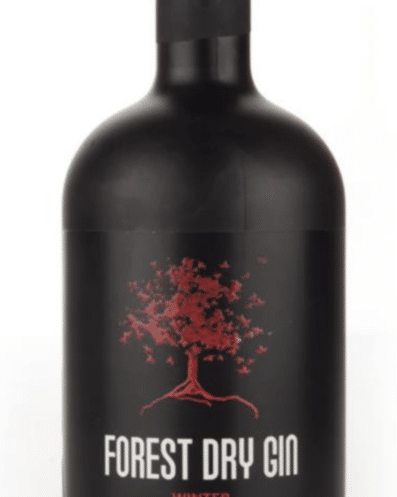Belgian sommelier, restaurateur, and author of 150 Bars You Need to Visit Before You Die. Now he’s a gin producer as well. He has created a line of seasonally inspired Forest Dry Gins, of which Forest Dry Gin Winter is one.
Each botanical is distilled separately and blended. While all four gins in the line boast the same botanicals, the expressions vary based on blending.
Tasting Notes
Nose: Juniper at the fore, but jammy citrus dominates. Lemon marmalade, bitter orange and angelica. At first nose, Forest Dry Gin Winter appears a citrus-forward gin based on a classic formula.
Flavor: The palate is rich and robust with a very prominent botanical presence. Early lemon, piney juniper and neroli oil dominate with geosmin facets. Later, grapefruit takes leading role. Juniper fades into the background replaced by vibrant multi-faceted citrus.
Finish: Moderately long, it fades with grapefruit, geosmin, and hints of jasmine.
Forest Dry Gin finishes dry, but far more contemporary in approach than first nose suggested.
Cocktails
Mixed, the citrus shines. Forest Dry Gin Winter works well in a gin and tonic, imparting a citrus-buoyed brightness that comes through. A drop of bitters I think really elevates this. This also suggests a pink gin.
The citrus notes come through work well in a warming, wintry Negroni.
Bartenders should treat Forest Dry Gin as a specialty gin with a citrus approach. It will bring a citrus flavor to any mixed drink or cocktail. That being said, it is flexible and works well in most gin cocktails.
Overall, Forest Dry Gin Winter
The Forest Dry Gin Winter variation eschews some of the winter cliches of baking spice and Christmas cookies. It instead embraces the winter seasonality of citrus.
For me though, the paradox is that this gin works best in bright summer drinks like the gin and tonic.
Overall though, it’s a solid, if unspectacular citrus-forward contemporary style gin.

